CONFERENCE SCHEDULE
THURSDAY, SEPT. 26
Enhancing Communication: AI’s Role in Multilingual and Multimodal Interaction
Session One | 10:30 a.m. - 12:15 p.m.
This session highlights how AI is used to improve communication skills across various languages and the nuances involved in tone and non-verbal cues.

Nicole Mills, PhD

Raja Kushalnagar, PhD
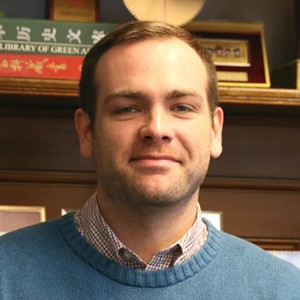
Thomas Noel, PhD
Nicole Mills, PhD, Harvard University, "As Communication Steps to the Forefront: Communicative Competence in the Age of AI"
Dr. Mills is the joint director of language programs in the Department of Romance Languages and Literatures and lecturer in the Graduate School of Education at Harvard University. She teaches courses in French, language pedagogy, and technology enhanced language learning and serves as the advisor for Harvard’s Bok Certificate in Teaching Languages and Cultures. Her research interests are the psychology of language learning and its intersection with virtual and simulated environments in language learning. She holds a doctorate in Educational Studies and French from Emory University.
Raja Kushalnagar, PhD, Gallaudet University, "AI and ASL/English"
Dr. Kushalnagar is a professor and director of the Information Technology undergraduate program and Accessible Human-Centered Computing graduate program at Gallaudet University in Washington, DC. With over 15 years of experience in the accessible technology field and his own experiences as a deaf individual, Dr. Kushalnagar brings a wealth of lived experience and research to the field. He focuses on strategic planning, local industry, alumni relations and faculty support. Dr. Kushalnagar received his PhD in Computer Science and Master of Laws in Intellectual Property and Information Law from the University of Houston in 2010 and Juris Doctor from Texas Southern University in 2008.
Thomas Noel, PhD, Villanova University, "Weighing Logograms Against Tones – Reflecting on the Use of AI for Language Immersion in Introductory Chinese"
Dr. Noel teaches courses in Chinese language and early Chinese humanities for the Department of Global Interdisciplinary Studies at Villanova University. His research focuses on early Chinese poetics and narratology, comparative ecopoetics and historiography and translation studies. He also maintains pedagogical interests in historical linguistics and second language acquisition. Dr. Noel received his master’s degrees in Comparative Literature and Chinese as well as his PhD in Chinese from the University of Wisconsin.
Lunch | 12:30 p.m. - 2:00 p.m.
Transforming Teaching: AI-Driven Approaches in Classroom and Assessment
Session Two | 2:00 p.m. - 3:45 p.m.
This session focuses on how AI tools are transforming traditional teaching and assessment methods, enhancing efficiency and engagement in the language learning process.
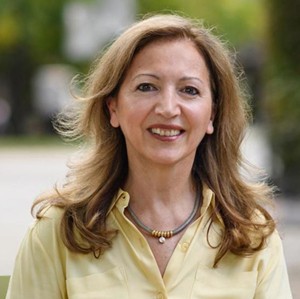
Adriana Merino, PhD
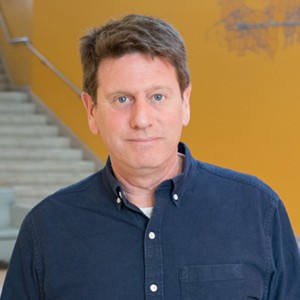
Ben Johnston
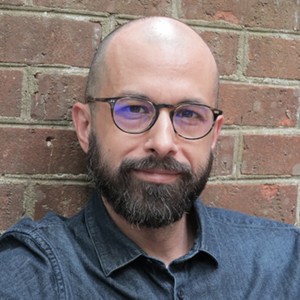
Spyridon Simotas, PhD
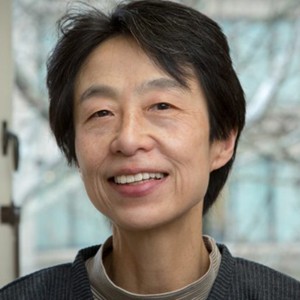
Takako Aikawa, PhD
Adriana Merino, PhD, and Ben Johnston, Princeton University, "L2 Assessment Reimagined: Integrating AI in Formative Evaluations through Scenario-Based Approaches"
Dr. Merino is a senior lecturer in Spanish at Princeton University. She holds a PhD in Foreign Languages and Linguistics from the National University of Distance Education in Spain, specializing in Pragmatics, and a master’s degree in Linguistics and Discourse Analysis from the National University of Cordoba in Argentina. Her teaching experience includes English and Spanish as second/foreign languages, applied linguistics, discourse analysis and teaching training courses. Her current research projects address instructional pragmatics and oral interaction, empathy pedagogy and material development and assessment using generative AI. She has published several articles on language pedagogy and book chapters on discourse analysis and pragmatics.
Ben Johnston is senior educational technologist at Princeton University's McGraw Center for Teaching and Learning. Since 1999, Johnston has worked in the field of educational technology at Columbia University, Bryn Mawr College and Princeton University, focusing on the purposeful application of digital tools and technologies that encourage collaboration and experiential learning, and that highlight the strengths of residential colleges and universities. Johnston holds a master’s degree in Instructional Technology and Media from Teacher’s College, Columbia University and a bachelor’s degree from Earlham College.
Spyridon Simotas, PhD, University of Virginia, "Tools as Tutors: GenAI Feedback’s Role in Language Learning"
Dr. Simotas is an assistant professor in the Department of French at the University of Virginia. He also serves as the director of the Summer Language Institute, an eight-week immersion course for beginner learners of French. Dr. Simotas earned his PhD from the University of Virginia with a thesis on experimental literary forms that emerged on the web at the turn of the 21st century. Today, his research interests lie at the intersection of second language acquisition and technology with a particular focus on artificial intelligence.
Takako Aikawa, PhD, Massachusetts Institute of Technology, "Unlearn, Relearn and Transform: Fluid Language Pedagogy in the Age of AI"
Dr. Aikawa is a senior lecturer in Japanese in Global Languages at Massachusetts Institute of Technology (MIT). She oversees the Japanese language curriculum and steers its future direction. Prior to joining MIT's Global Languages in 2013, she worked for natural language processing and machine translation teams at Microsoft Research. Her pedagogical research centers on integrating emerging technologies like virtual reality (VR) and artificial intelligence (AI) into language education. Her current projects involve developing an application that simulates immersive language-learning environments using VR and AI technologies.
Coffee Break | 3:45 p.m. - 4:45 p.m.
Laurent Dubreuil, PhD, Cornell University, "The Humanities in the Time of AI: Language, Generation, Creation"
Keynote Lecture | 5 - 6 p.m.
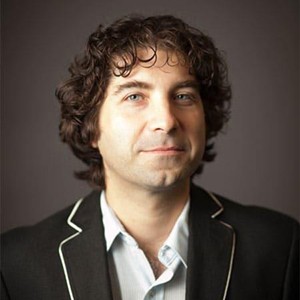
A professor of Comparative Literature, Romance Studies and Cognitive Science, and director of French Studies at Cornell University, Laurent Dubreuil, PhD, is the founding director of the Humanities Lab at Cornell, an intellectual forum for scholars who conduct research at the interface of the sciences and the humanities, while eschewing reductionism. Dr. Dubreuil also holds the IWLC International Chair of Transcultural Theory at Tsinghua University. Dr. Dubreuil is the author of more than 15 scholarly books, published in English and/or French, and has served as editor for Diacritics and Labyrinthe. Among his publications are The Intellective Space: Thinking Beyond Cognition (Minnesota: 2015), Poetry and Mind: Tractatus Poetico-Philosophicus (Fordham: 2018), Dialogues on the Human Ape, co-authored with Sue Savage-Rumbaugh, PhD (Minnesota: 2019), and Humanities in the Time of AI (Minnesota: 2025). His recent and ongoing collaborative research projects include an inquiry on poetry and artificial intelligence (on which he recently wrote in Harper’s Magazine), a semantic exploration (by humans and computers) of the French lexicon of indigeneity, and an experiment on art appreciation and production in bonobos.
FRIDAY, SEPT. 27
Cultivating Insights: AI in Literature and Cultural Studies
Session 3 | 9:00 a.m. - 10:45 a.m.
This session explores AI’s impact on literature education, providing innovative approaches to literary analysis and cultural studies through computational models and AI interactions.

Rossella Di Rosa, PhD
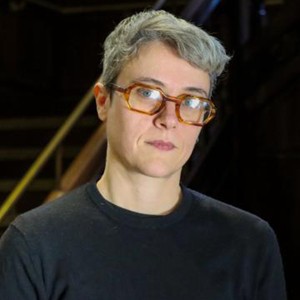
Julia Heim, PhD

Jacob Matthews
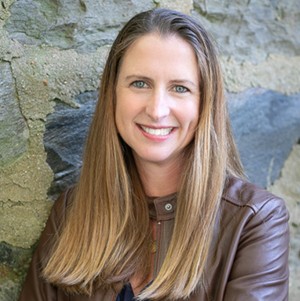
Megan Quigley, PhD
Rossella Di Rosa, PhD, and Julia Heim, PhD, University of Pennsylvania, "Partnering with AI: Enhancing Collaboration and Engagement in Language and Literature Instruction"
Dr. Rosa is a lecturer in Foreign Languages at the University of Pennsylvania. She directs the Italian language program and teaches language pedagogy, Italian language, culture and literature at the undergraduate and graduate levels. Her academic interests focus on second language acquisition, critical pedagogy and ecological approaches to teaching language and literature. She has published several articles that explore effective practices in foreign language instruction, nomadic spaces and subjectivities, the definition of nature, and the relationship between human and nonhuman beings in 20th and 21st-century Italian Women Writers.
Dr. Heim (they/she) is a lecturer of foreign language at the University of Pennsylvania. Their research is centered around LGBTQIA+ representation in contemporary Italian media and radical inclusive pedagogies. They have recently published a co-edited volume entitled Spaghetti Sissies: Queering Italian Media (Palgrave, 2023), and a co-edited article with their colleague Rossella Di Rosa entitled “Tying Thoughts and Forging Bonds in Language and Content Instruction” in Teaching Italian Language and Culture Annual (2023).
Jacob Matthews, Cornell University, "Measuring Semantic Change with Computational Models"
Matthews is a PhD candidate in Romance Studies at Cornell University with a minor in Cognitive Science. His research bridges literary theory, cognitive science and computational linguistics, focusing on how language model representations inform our understanding of human language processing. Matthews is a member of the Humanities Lab at Cornell, Computational Psycholinguistics Discussions, and Cornell Natural Language Processing (NLP) Group. He has presented his recent work at conferences and co-authored a forthcoming paper in Findings of the Association for Computational Linguistics on contextual word embeddings. His interests include representational analysis, semantic change and NLP applications in humanities research.
Megan Quigley, PhD, Villanova University, "Is the Human a Vague Category? Reading Ishiguro’s Klara and the Sun with AI"
Dr. Quigley is associate professor of English at Villanova University, where she is also on the Irish Studies and Gender and Women’s Studies faculty. She is the author of Modernist Fiction and Vagueness: Philosophy, Form, and Language (Cambridge University Press, 2015), and co-editor of the volume Eliot Now (Bloomsbury, 2024). She is a four-time lecturer and seminar leader at the T. S. Eliot International Summer School in London and has written essays on literary modernism, gender, #metoo, logic and philosophy. Her current book project, The Love Song of Modernism, focuses on modernism, artificial intelligence and fanfiction.
Coffee Break | 10:45 a.m. - 11:00 a.m.
Advancing AI Literacy: Preparing Educators and Learners for the Digital Age
Session four | 11:00 a.m. - 12:45 p.m.
Focused on building a foundational understanding of AI in educational settings, this session addresses the preparation necessary for educators and students to effectively utilize AI tools.
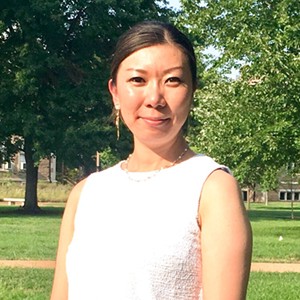
Nana Takeda Kolb
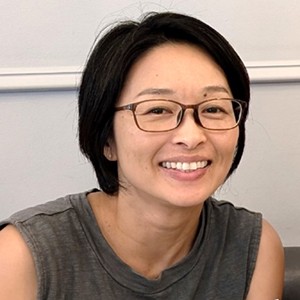
Megumu Tamura
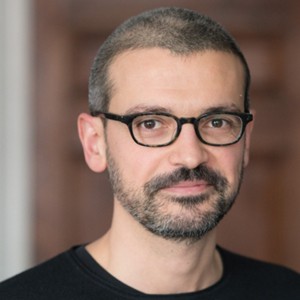
Roberto Rey Agudo, PhD
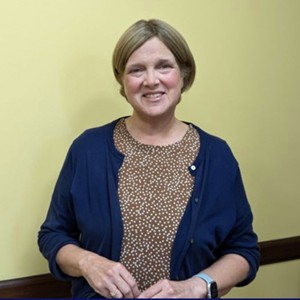
Kim Armstrong, PhD
Nana Takeda Kolb and Megumu Tamura, University of Pennsylvania, "Utilizing generative AI for promoting metalinguistic awareness in the beginning and intermediate Japanese language classes"
Takeda Kolb is a lecturer of Japanese Language at the University of Pennsylvania. Her primary research interests encompass AI and technology in language education, willingness to communicate in second language learning, and Japanese language studies through media and pop culture. Drawing on her experience in Japan's rapidly changing mass media industry, Takeda Kolb brings professional expertise to the creation of current and relevant classroom materials. Beyond her academic work, she serves as an assistant leader on the development team for the National Japanese Exam and spearheads Japanese cultural events and activities at the University of Pennsylvania.
Tamura is a lecturer in Foreign Languages at the University of Pennsylvania. She is responsible for coordinating and teaching courses ranging from introductory to advanced levels. Tamura has developed innovative course materials using various media and technologies, enhancing learner interaction and autonomous learning. Her research focuses on instructional methods designed to enhance learners’ critical thinking, autonomy and metalinguistic skills, aiming to create a more supportive and enriching learning environment. Her current project involves integrating artificial intelligence-driven tools to empower students in language learning, aiming to foster autonomy and inclusivity in the classroom.
Roberto Rey Agudo, PhD, Dartmouth College, "AI Literacy and Language Faculty Professional Development: A Survey of Attitudes, Policies and Practices"
Dr. Agudo is a research assistant professor and the language program director for the Department of Spanish and Portuguese at Dartmouth College. He received his PhD from the Universidad Complutense de Madrid. He has been teaching Spanish in the United States for over 20 years, including Harvard University, Washington University in St. Louis, Boston College, Boston University, and Massachusetts Institute of Technology. He has written on language education and multilingualism in the United States in The New York Times, Washington Post, LA Times, and Inside Higher Ed.
Kim Armstrong, PhD, Franklin and Marshall College, "How I made frenemies with Chat GPT"
Dr. Armstrong is a professor of Spanish and Linguistics and former associate dean of the faculty at Franklin and Marshall College in Lancaster, Pennsylvania. She is the co-author of the textbooks De Nuevo and Puertas y Puentes; the latter is an open educational resource. Dr. Armstrong has published articles on language and applied linguistics in The Foreign Language Annals, The Canadian Modern Language Journal, The AACE Journal, and various edited volumes. Her research interests include second language writing and the impact of technology on language learning.
12:45 p.m. - 2:00 p.m. | Lunch
2:00 p.m. - 3:15 p.m. | Session 5
Personalizing Pedagogy: AI in Content Creation and Language Learning
This session explores the role of AI in personalizing educational content and language learning processes to better meet individual learner needs and preferences.
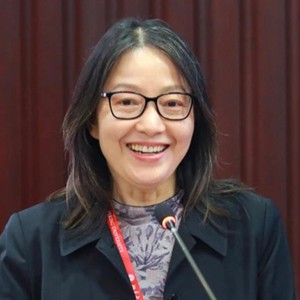
Zhirong Wang, PhD
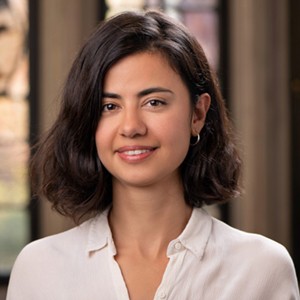
Meryem Ezgi Yalçın
Zhirong Wang, PhD, Columbia University, "Harnessing AI for Personalized Language Learning: A Case Study of ChatGPT in Advanced Chinese Instruction"
Dr. Wang, currently serves as the director of the Chinese Language Program at Columbia University. Her research interests include the history of the Chinese language, Chinese syntax and pedagogical strategies for teaching Chinese as a second language. Dr. Wang’s contributions include the authoring and co-authoring of several books such as Renwen Tianxia (Beijing Language and Culture University Press), A Primer for Advanced Beginners of Chinese (Columbia University Press), and An Elementary Chinese Reader (Beijing University Press). Her work is recognized for its influence in the study and instruction of the Chinese language.
Meryem Ezgi Yalçın, Yale University, "Enhancing Flipped Learning with AI: Creating Engaging Self-Paced Learning Materials"
Yalçın is the director and a lector of the Modern Turkish Program in the Department of Near Eastern Languages and Civilizations at Yale University. Yalçın is a world language educator with a background in applied linguistics. Her work was recognized by the Poorvu Innovation Award by Yale College and she is the recipient of the Applied Linguistics Award by the University of Glasgow.
Closing reception | 3:30 p.m. - 5:00 p.m.
